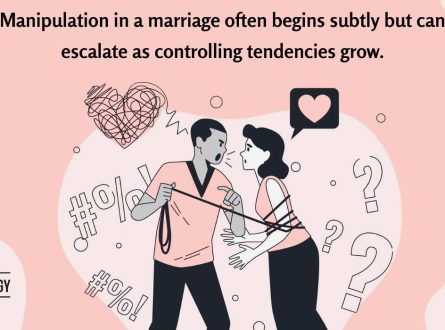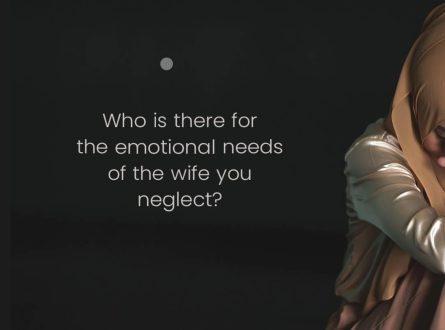When Both Are Married: The Dangerous Appeal of Affairs Between Spouses
Extramarital affairs are as old as marriage itself. But there’s a modern pattern emerging that’s particularly insidious: married people having affairs with other married people.
This isn’t the classic scenario of a married person with a single lover. This is two people, both with wedding rings, both with spouses at home, both with commitments they’re breaking—finding each other and creating a secret world that feels safer precisely because both have everything to lose.
If this describes you, or if you’re teetering on the edge of this situation, you need to understand why it happens, why it feels different, and why it’s actually more dangerous than you think.
The State of Marriage: A Society-Wide Problem
Before we dive into the specifics of married-to-married affairs, we need to acknowledge something uncomfortable: the frequency of these affairs tells us something about the state of marriage in our society.
Yes, many cases are avoidable. Yes, people make choices. But when patterns emerge at scale, we’re looking at systemic issues, not just individual moral failures.
We’re Not Paying Attention at Home
How many marriages are running on autopilot? Two people living parallel lives, focused on careers, children, finances, social obligations—everything except each other.
You pass each other in hallways. You coordinate schedules. You manage a household. But when was the last time you had a real conversation? When did you last feel truly seen by your spouse?
Neglect creates vulnerability. And vulnerable people seek connection wherever they can find it.
We’re Not Preparing People for Marriage
We spend more time planning weddings than preparing for marriages. We obsess over flowers and venues while remaining clueless about conflict resolution, emotional intimacy, financial compatibility, and sexual communication.
People enter marriage with romantic fantasies and zero practical skills. Then reality hits—the mundane dailiness, the compromises, the disappointments—and they’re utterly unprepared.
Unprepared people struggle. And struggling people sometimes make terrible choices.
If we had more premarital education, more realistic expectations, more skills for navigating the inevitable challenges—we’d have fewer people seeking escape in someone else’s arms.
The Unique Appeal: Why Another Married Person?
When a married person chooses another married person for an affair, it’s not random. There are specific reasons why this pairing feels safer, more understanding, and somehow more justified.
1. Shared Experience and Understanding
Your spouse doesn’t understand why you’re unhappy. They dismiss your concerns, minimize your needs, or simply can’t relate to what you’re going through.
But this other person? They’re living the same story.
They understand the loneliness of an empty marriage. They relate to feeling invisible despite being physically present every day. They know what it’s like to crave touch, attention, appreciation—and receive none of it at home.
This shared experience creates instant connection. You don’t have to explain your hurt because they’re hurting too. You don’t have to justify your needs because they have the same ones.
It feels like finally finding someone who speaks your language after years of not being understood.
2. Built-In Discretion
A single person having an affair with a married person has less to lose. They might want more from you. They might get emotional and threaten to tell your spouse. They might not understand why you can’t leave.
But another married person? They have just as much to hide as you do.
This creates a perverse sense of security. You’re mutually assured in your discretion because exposure destroys both of you. You both understand the need for secrecy. You both know how to be careful.
It feels safer precisely because you’re both trapped, both guilty, both invested in keeping it quiet.
3. Clear Boundaries (Or So You Think)
When you’re both married, the affair comes with built-in limitations—or so the logic goes.
You both have marriages to return to. Neither of you is looking to leave your spouse. This isn’t about building a future; it’s about meeting present needs.
You hang out. You connect. You have wild, uninhibited sex. You support each other emotionally and physically. Then you go back to your respective homes.
It’s compartmentalized. Contained. Manageable.
The assumption is that because you’re both married, you’re both mature enough to keep it “just physical” or “just emotional support” without it becoming complicated.
This assumption is almost always wrong.
The Plan vs. The Reality: When Emotions Betray You
Here’s what nobody tells you about affairs between married people: emotions don’t respect your boundaries.
You might have started this with clear rules:
- No falling in love
- No expectations beyond the affair
- No disrupting each other’s marriages
- No getting possessive or jealous
You were both mature, both clear-eyed, both in control.
And then it all falls apart.
The Escalation: Needing More
What used to be enough suddenly isn’t.
You find yourself wanting more time with them. Not just the stolen hour at lunch—you want evenings, weekends, entire days. You want to wake up next to them, not just have hurried sex and separate.
You want more attention. You start noticing when they don’t text back quickly. You wonder who else they’re talking to. You feel anxious when you can’t reach them.
You want more emotional intimacy. The surface-level connection deepens. You’re sharing things you haven’t told anyone else. They become your confidant, your therapist, your best friend.
The affair that was supposed to stay casual becomes the primary relationship in your emotional world.
The Entitlement: When You Start Expecting
A dangerous shift happens: you begin feeling entitled to them.
You expect them to be available when you need them. You expect priority even though neither of you can actually give priority. You expect them to choose you, even though the whole point was that neither of you was choosing anyone.
This entitlement has no logical basis—you’re both married to other people—but emotions don’t care about logic.
You start keeping score. “I canceled plans with my spouse to see you.” “I bought you that gift.” “I’m always there for you.” The transactional nature becomes resentment fodder.
The Jealousy: The Emotion You Can’t Admit
And then comes the jealousy. Oh, the jealousy.
You’re jealous of their spouse—the person who gets to wake up next to them, who has their name, who shares their life publicly. The person who has everything you want but can’t have.
You’re jealous when they can’t see you because of family obligations. You’re angry when they choose their marriage over you, even though that’s exactly what you’re both supposed to be doing.
You’re jealous, but you can’t admit it. Because admitting jealousy means admitting you’ve developed feelings you swore you wouldn’t develop. It means acknowledging that you want more than this arrangement allows.
So the jealousy sits there, unexpressed and toxic, poisoning what was supposed to be your “safe place.”
The Transformation: Safe Place to Battlefield
The person who understood you perfectly now can’t do anything right.
They don’t text enough. They text too much at the wrong times. They’re not emotional enough, or they’re too emotional. They’re spending too much time with their spouse. They’re not investing enough in the affair.
What was once your refuge becomes another source of conflict.
The fights start. Quiet, hissed arguments in cars. Tense silences during stolen moments. Passive-aggressive texts. All the drama you were escaping at home has followed you into your “escape.”
Suddenly you have two complicated relationships instead of one.
The Danger Zone: When Everything Starts Unraveling
Now you’re in deep. Dangerously deep.
The Risk of Exposure Increases
As emotions escalate, so does recklessness. You take more risks. You’re less careful about covering your tracks. You might even subconsciously want to get caught because at least that would force a resolution.
Slip-ups happen. A text seen by the wrong person. An unexplained charge on a credit card. Being spotted together somewhere you shouldn’t be. Your mood swings becoming too obvious at home.
Getting caught doesn’t just end the affair—it potentially destroys two marriages, four lives, and any children involved.
The Anger Toward Your Spouse Intensifies
Ironically, as the affair becomes more complicated, you become angrier at your spouse.
You blame them for pushing you to this. If they had paid attention, if they had met your needs, if they had loved you properly, you wouldn’t be in this mess.
This anger is partially displacement—you’re angry at yourself but can’t face it, so you project it onto your spouse. It’s easier to blame them than to own your choices.
But that anger makes everything worse. You become colder at home. Less patient. More critical. Your marriage deteriorates further, which you then use to justify continuing the affair.
You’re in a vicious cycle of your own creation.
The Emotional Toll Becomes Unbearable
Living a double life is exhausting.
You’re managing two relationships, both of which are now complicated. You’re lying constantly. You’re compartmentalizing emotions. You’re trying to be present at home while your heart and mind are elsewhere.
The guilt, when it surfaces, is crushing. The fear of discovery is constant. The conflict between what you’re doing and who you thought you were creates cognitive dissonance that wears you down.
You’re not happy in either relationship anymore. The affair has become as stressful as the marriage you were escaping.
Whatever Stage You’re At: You’re Not Alone
If you’re reading this and seeing yourself—whether you’re in the early stages where it still feels manageable, or deep in the complicated mess where everything has spiraled—you’re not the first person in this situation.
Countless people have walked this exact path. The details differ, but the pattern is remarkably consistent.
And yes, it’s complicated. More complicated than anyone who hasn’t been there can understand.
You’re not a monster. You’re a flawed human being who made choices that seemed reasonable at the time and now finds themselves in a situation they can’t easily escape.
But you can get help. And you need to, before the damage becomes irreparable.
The Path Forward: Creating Distance and Finding Clarity
Getting out of an affair with another married person requires deliberate action and usually professional support. Here’s what the process typically involves:
1. Acknowledge the Full Reality
Stop minimizing what’s happening. Stop telling yourself it’s “just sex” or “just emotional support” when it’s clearly become much more.
Be honest with yourself about:
- How deep your feelings have become
- How much damage you’re risking
- How unhappy you actually are in both relationships now
- What you’re modeling for any children who might discover this
2. Seek Professional Help Immediately
You need a therapist or counselor who specializes in infidelity. Not a friend. Not a religious leader who might shame you. A trained professional who can help you:
- Understand what drove you to this point
- Process the complex emotions you’re experiencing
- Develop a plan to end the affair safely
- Decide what to do about your marriage
- Rebuild your sense of self outside of both relationships
This isn’t something you can navigate alone. The emotional complexity requires professional guidance.
3. End the Affair (It Won’t End Itself)
Affairs between married people rarely end naturally. There’s too much mutual understanding, too much investment, too many reasons to keep it going “just a little longer.”
You have to actively choose to end it.
This means:
- Having a clear, final conversation
- Blocking all channels of communication
- Avoiding places you might run into each other
- Being prepared for the grief and withdrawal that will follow
If they work with you or are otherwise unavoidable in your life, you need professional help creating boundaries that allow necessary interaction without reopening the affair.
4. Create Physical and Emotional Distance
Once you’ve ended it, you need space to think clearly. You can’t evaluate your marriage fairly while you’re still emotionally entangled with someone else.
Distance allows you to:
- Experience withdrawal and work through it
- Remember who you were before this started
- Assess your marriage without comparison to the affair
- Reconnect with your own values and identity
This phase is painful. You’ll miss them. You’ll be tempted to reach out. You’ll rationalize why “just checking in” would be okay.
Don’t. Every contact resets your healing.
5. Address Your Marriage
Now comes the hard question: What do you do about your marriage?
You have options:
Option A: Work to Save It
- Be honest with yourself about whether your spouse contributed to your vulnerability
- Decide whether to disclose the affair (this requires professional guidance—disclosure isn’t always the right choice)
- Commit to marriage counseling
- Address the underlying issues that made you susceptible to the affair
- Rebuild emotional and physical intimacy
- Be patient—healing takes years, not months
Option B: End It
- Recognize if the marriage was already over before the affair
- Understand that staying out of guilt helps no one
- Consult with a lawyer about the best path forward
- Be prepared for the affair to come up in divorce proceedings if it’s discovered
- Commit to learning from this so you don’t repeat patterns
Option C: Time and Evaluation
- Give yourself time before making permanent decisions
- Focus on healing yourself first
- Don’t make major choices while still in emotional turmoil
- Use therapy to gain clarity about what you actually want
6. Rebuild Yourself
Regardless of what happens with your marriage, you need to rebuild your own integrity and identity.
Ask yourself:
- What values did I compromise, and how do I realign with them?
- What needs was I trying to meet through the affair, and how can I meet them honestly?
- What patterns in my life led me here, and how do I change them?
- Who do I want to be moving forward?
This isn’t about shame or punishment. It’s about growth and ensuring you don’t find yourself in this situation again.
It Might Not Be Too Late
The question you’re probably asking: Is it too late?
The honest answer: it depends.
Too late for what? To save your marriage? Maybe, maybe not. To end the affair without consequences? Probably—most affairs leave some mark, even if undiscovered.
But is it too late to stop the damage from getting worse? No. It’s not too late for that.
Every day you continue down this path increases the risk of:
- Complete exposure and the destruction that follows
- Deeper emotional entanglement that’s harder to escape
- More damage to your marriage (if you want to save it)
- Greater harm to your mental health and self-concept
- Modeling destructive relationship patterns for your children
The best time to address this was before it started. The second best time is right now.
The Society We Need to Build
While you work on your individual situation, we need to acknowledge the bigger picture: we need to do better as a society in how we approach marriage.
We need to:
- Teach relationship skills before people marry, not after they’re struggling
- Normalize marriage counseling as maintenance, not crisis intervention
- Create cultures where spouses prioritize each other, not just children and careers
- Reduce the stigma around admitting marital struggles so people seek help earlier
- Build support systems for marriages, not just weddings
Affairs are often symptoms of marriages that were starving long before the affair began. If we fed marriages better, we’d have fewer people looking for nourishment elsewhere.
Final Thoughts: You Can Get Through This
If this is you—if you’re in an affair with another married person, if you’re drowning in the complexity of it, if you’re terrified of what comes next—you can get through this.
It won’t be easy. It will require courage, honesty, professional help, and time. It will hurt. You’ll grieve. You’ll question everything.
But on the other side of this is clarity. Integrity. The possibility of genuine happiness instead of stolen moments.
You’re not defined by your worst choices. You’re defined by what you do after making them.


















